- News
- Reviews
- Bikes
- Accessories
- Accessories - misc
- Computer mounts
- Bags
- Bar ends
- Bike bags & cases
- Bottle cages
- Bottles
- Cameras
- Car racks
- Child seats
- Computers
- Glasses
- GPS units
- Helmets
- Lights - front
- Lights - rear
- Lights - sets
- Locks
- Mirrors
- Mudguards
- Racks
- Pumps & CO2 inflators
- Puncture kits
- Reflectives
- Smart watches
- Stands and racks
- Trailers
- Clothing
- Components
- Bar tape & grips
- Bottom brackets
- Brake & gear cables
- Brake & STI levers
- Brake pads & spares
- Brakes
- Cassettes & freewheels
- Chains
- Chainsets & chainrings
- Derailleurs - front
- Derailleurs - rear
- Forks
- Gear levers & shifters
- Groupsets
- Handlebars & extensions
- Headsets
- Hubs
- Inner tubes
- Pedals
- Quick releases & skewers
- Saddles
- Seatposts
- Stems
- Wheels
- Tyres
- Health, fitness and nutrition
- Tools and workshop
- Miscellaneous
- Cross country mountain bikes
- Tubeless valves
- Buyers Guides
- Features
- Forum
- Recommends
- Podcast
feature
The future of going fast? Why live drag sensors might be cycling's next big tech craze
In the last few decades, the abundance of data via power meters and cycling computers has changed the face of both professional and amateur cycling. As the data we can glean from tech such as GPS, heart rate monitors and power meters plateaus, could live-streaming aero sensors be the next revolution in road cycling? We've got our hands on one to find out what the World Tour's latest toy is all about...
In 1994 the US National team was the first in history to have all their riders kitted out with power meters at the Tour de Pont. Fast forward thirty years and you'll be hard-pressed to find a single pro in the peloton who isn't racing and training to carefully curated wattage targets.
Of course, it's not just the pros that fit these devices to their bikes. You can now pick one up for less than £300, with the more affordable pricing meaning that power meters have arguably changed the face of cycling for pros and amateurs alike.
> Where are they now? The best, worst and wackiest cycling crowdfunders
But what's the next bit of revolutionary cycling tech going to be? Well, in recent months we've seen multiple attempts, prototypes and noise surrounding drag measuring devices. This tech makes power meters look like antiques!
Could this be the future of going fast? Or is this just another promising cycling idea that will never catch on?
What is an aero sensor?
> Body Rocket expands its real-time drag measuring system to road bikes
An aero sensor or live drag meter such as the Body Rocket system (fitted to the bike above) or this 'Aerosensor' (below) that I've been using will measure your CdA (Coefficient of drag) in real-time. It's tech that has previously been used on planes and F1 cars, but now teams like Lidl-Trek are using it in an attempt to make cyclists faster.
Over the last few months, I've been putting the miles in to see if this little sensor is any good, how it works and predict whether in 10 years' time, we're all going to be using one. It's worth noting here that this article isn't a full review of the Aerosensor product itself (that will be coming soon), but rather a dive into whether drag measuring devices have the potential to become mainstream.
Why might you want to measure your drag?
Somewhat competitive cyclists (myself included) are always banging on about aerodynamics - it wasn't so long ago that "aero is everything" was Specialized’s phrase for all occasions. The dark art of taming the wind now shapes the clothes we wear, the bikes we ride, the helmets on our heads and even how we ride.
All of this is for very good reason. Drag is, in nearly all cases, by far the biggest force impeding our forward motion. On a flat road, there's only two main things slowing you down: your tyre rolling resistance from an area the size of about a two pence coin, and the air that you're trying to travel through. Maybe we should be paying even more attention to how slippery we are...
> Why riders like you need to get more aero
And yet, while it's now possible to measure power output, heart rate, the glucose in your blood, core body temperature and all manner of other nerdy stats, up until now I haven't had the foggiest idea of how aero I am.
Why might you buy an Aerosensor and how does it work?
This is where the Aerosensor comes in, with its claims to give me a live drag number without the need to spend a fortune on a wind tunnel session.
It combines data from an ANT+ speed sensor and power meter (dual-sided preferred) with its own measurements of altitude and wind conditions to calculate my CdA. The idea is that if I then change my body position or equipment, then it takes the guesswork out of whether I've improved my aerodynamics or given myself an even bigger problem.
What's in the box?
On test, I have what Aerosensor call the ACS Body Package, made up of an aero drag measuring device that sits under my bars on a GoPro-style mount. There's also a body position sensor that sits on a quarter-turn mount on my stem.
You can buy them separately, but I think to get the most out of it you will require both as around 80% of your drag is your body. Even a small change here can have a far bigger effect than just about anything you could ever do to your bike.
The body position monitor (below) uses optical sensors to measure your head and shoulder position relative to the stem, and claims to be accurate to 1mm. It then live streams this position to my Garmin computer via a Garmin IQ app, and once I've set a target or optimum position it will then change colour if I deviate from that.
The good thing is that you can use all this kit on your local roads. You don't need a velodrome, although if you do happen to have one of them near you then Aerosensor makes another bit of kit specifically for that.
Oh, and if you're wondering whether the rather flimsy-looking 3D-printed mount broke... no, although I was worried it might!
Aerosensor has already taken this on board and sent me a much more robust injection moulded one (above) which now comes as standard.
First ride and pairing
So, after downloading the IQ apps onto my Garmin, one for the body position sensor and one for the drag sensor, I now get live figures as I ride. I can then see all that data in my FIT files at the end for further analysis in some software called Aerotune.
> Review: Garmin Edge 840 Solar
In the case of the Aero sensor, if you're a Wahoo or any other cycling computer brand user then I'm afraid you're going to have to wait a bit longer. I guess that's the downside of not being able to get user-generated apps, but I'm sure as this technology matures we won't be limited to using it on a limited number of devices.
My Garmin now has some new colours to look at! The one on the left is my head position relative to the stem, and the right one is my chest position. If I'm too low, i.e. an unsustainable position, then it goes blue. If it's white I'm at the optimum that I've set beforehand, and it's red when I get lazy and sit up.
I've been using the freeride and out-and-back testing functions, but there is also modes for if you're doing laps of a circuit, such as a velodrome.
To be honest, the CdA number changes so quickly when riding that it's near impossible to figure out how aero you are; but as soon as you analyse it, you can quickly draw averages for laps, segments and the whole ride.
The set-up does take some effort, because you have to do some test runs and then manually change a load of parameters on your Garmin.
Results
> Is Jonas Vingegaard’s latest time trial helmet one step too far?
According to MyWindsock: "Time trialists can aim to have a CdA below 0.2, however, this is by no means the average which is closer to 0.22-0.23. A road bike racer can be as low as 0.24 but the average is closer to 0.27. A regular road bike and standard helmet in the summer is likely to be 0.3-0.32, however, in the winter this can be much higher.
"A performance cyclist should pay continuous attention to their aerodynamic efficiency. So whatever your current CdA you should attempt to lower it. It is in most cases more important than losing weight, although losing weight is also a good way to reduce your drag."
So what was my CdA? Well, on average across my runs I averaged a CdA of 0.275... I'll take that! This is likely helped by the fact that I was wearing a well-fitting aero kit, an aero helmet (the Specialized Evade 2), aero socks, ran an aero cockpit and even shaved my legs for the occasion.
Ed meanwhile clocked a CdA of 0.287, a result I reminded him of on every subsequent ride right up until I realised that he's several inches taller than me and set the result using shallower wheels. Still, a win's a win...
It should be noted that neither of us has been to a wind tunnel to validate these results, but perhaps more importantly the figures did appear to be repeatable on multiple attempts and on different days, as long as you invest a significant amount of time in setting up the parameters.
I'm therefore confident that you could indeed use the Aerosensor to measure the effect that different setups and positions will have on your CdA/drag. Once I'd got the hang of inputting all the parameters correctly, nearly every attempted test resulted in believable figures while on a training camp, but I did find it far harder to use back at home.
> Are expensive carbon wheels worth it?
The first issue is that you can't use it in wet conditions, which during the UK winter just gone has seemingly been just about every day. Second is traffic. We've found that a car going past or coming in the other direction will completely screw up the results, so it's best to find quiet, flat roads, which takes some searching here on the outskirts of Bath.
Is this the future or just another gimmick?
So, is this the future? Well... yes and no. It's certainly very clever and I've certainly learnt a few things that will hopefully make me faster. I'm also looking forward to using this to once and for all see which of my wheels are the fastest (stay tuned for lots more aero testing articles and videos). The bad news is that this kit that I've been using has an RRP of £1,215, cash that most of us don't have down the back of the sofa…
Of course this is tech that is very much still in its infancy, and so it will likely come down in price in the future. I highly doubt that anyone thought $4,000 dollars was a bargain when the first SRM power meter hit the market with that price tag, which would have been astronomical in the 90s.
At the moment the more limiting factor will be the setup and user interface. It is bug-free and reliable, but takes some getting your head around. I'm sure that this will only improve with time, but at the moment aero sensors certainly aren't for technophobes. I'll be diving into this in more detail in the upcoming full review of the Aerosensor.
So price aside, is this the future? I certainly think that we'll be seeing a lot more aero sensors and live drag meters very soon, initially being used by more pro teams during training and equipment testing camps, then TT specialists, and then the inevitable trickle-down to performance-driven amateurs. Who knows, maybe one day this kind of tech will be integrated into a cycling computer. That really would be cool...
Let us know your thoughts on this real-time drag-measuring device in the comments below. Would you buy one? Do you think they're the future?
Jamie has been riding bikes since a tender age but really caught the bug for racing and reviewing whilst studying towards a master's in Mechanical engineering at Swansea University. Having graduated, he decided he really quite liked working with bikes and is now a full-time addition to the road.cc team. When not writing about tech news or working on the Youtube channel, you can still find him racing local crits trying to cling on to his cat 2 licence...and missing every break going...
Latest Comments
- David9694 3 hours 35 min ago
Oxfordshire: Potholes 'out of control' and risk to cyclists...
- Motdoc 7 hours 49 min ago
You don't benefit from schools? You've never seen a doctor, a dentist, a teacher, didn't go to school yourself and don't care about the tax paying...
- thax1 9 hours 17 min ago
Another 'sound-alike' mid tier offer, so I get all excited and buy a bunch of them thinking I've got an absolute steal. Only to then realise I've...
- mdavidford 9 hours 27 min ago
first cast out the beam out of thine own eye
- eburtthebike 10 hours 48 min ago
Which is, ironically, very rare.
- mark1a 10 hours 50 min ago
New addition to the fleet, a Specialized Aethos. This is the Comp model, 12 speed 105 Di2, 10r carbon layup in pearlescent white, with upgraded...
- hawkinspeter 11 hours 57 min ago
Local 'nimbyism' dismissed as consensus is new scheme will 'increase footfall'...
- chrisonabike 12 hours 45 min ago
If they're formally recognising phone addiction, and have noted that our eating habits (driven by stuff people want to sell us) are obeseogenic ......
- Secret_squirrel 15 hours 56 min ago
Yes. Just like there's no push rod brakes or U brakes any more. Get with the program granddad.
- dreamlx10 16 hours 33 min ago
Looks like the perpetrators were not Italian

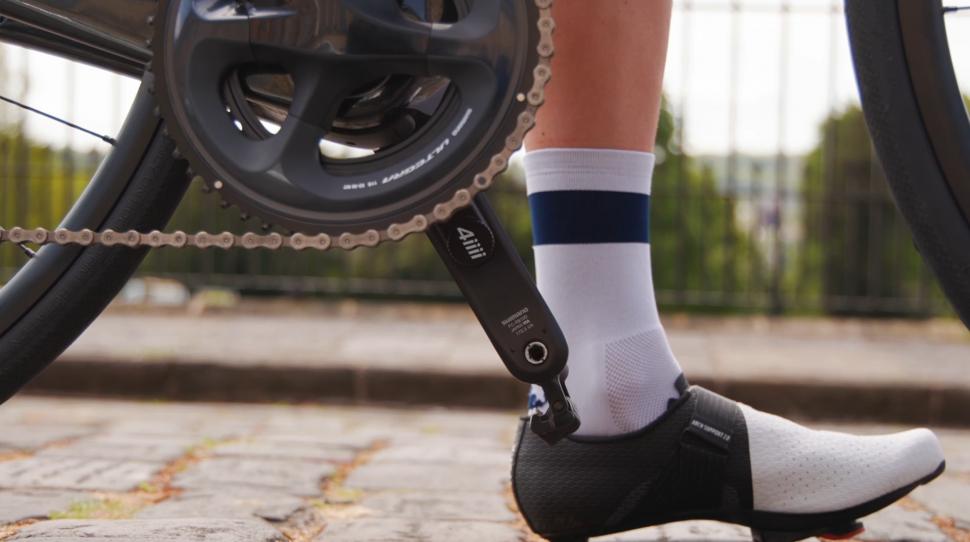
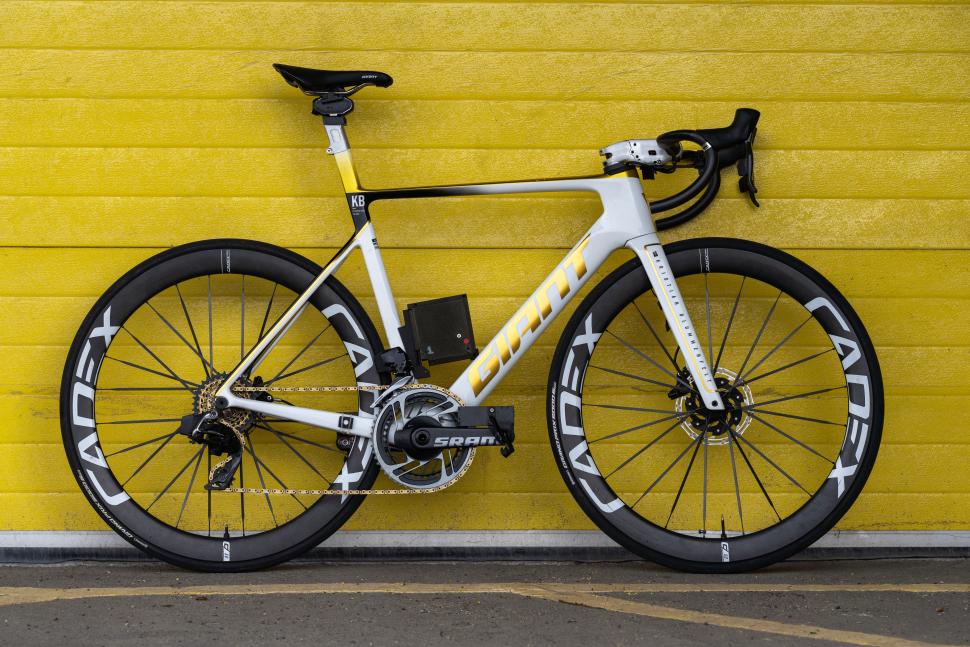

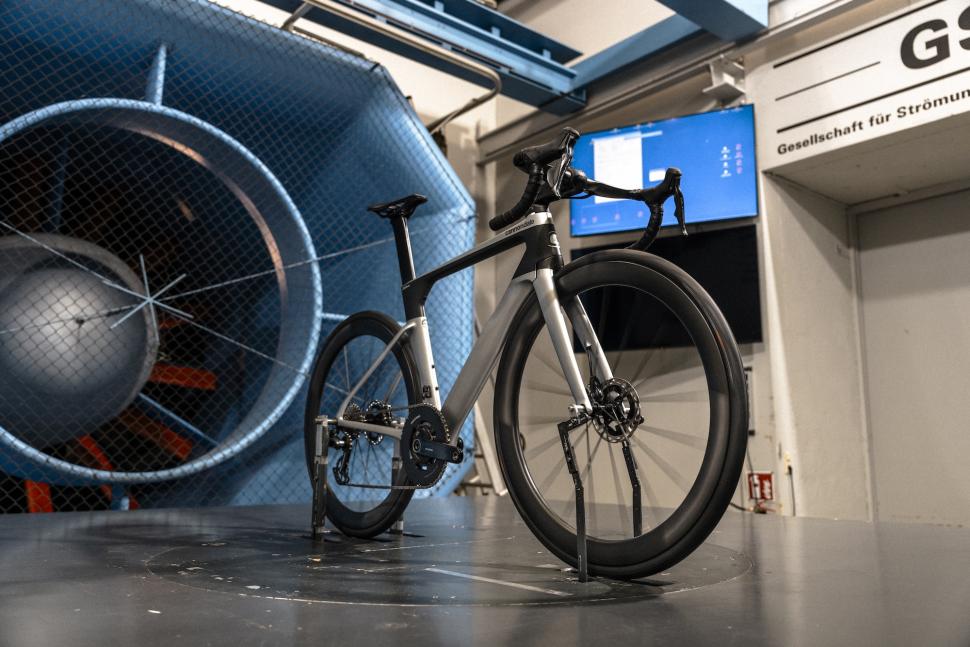
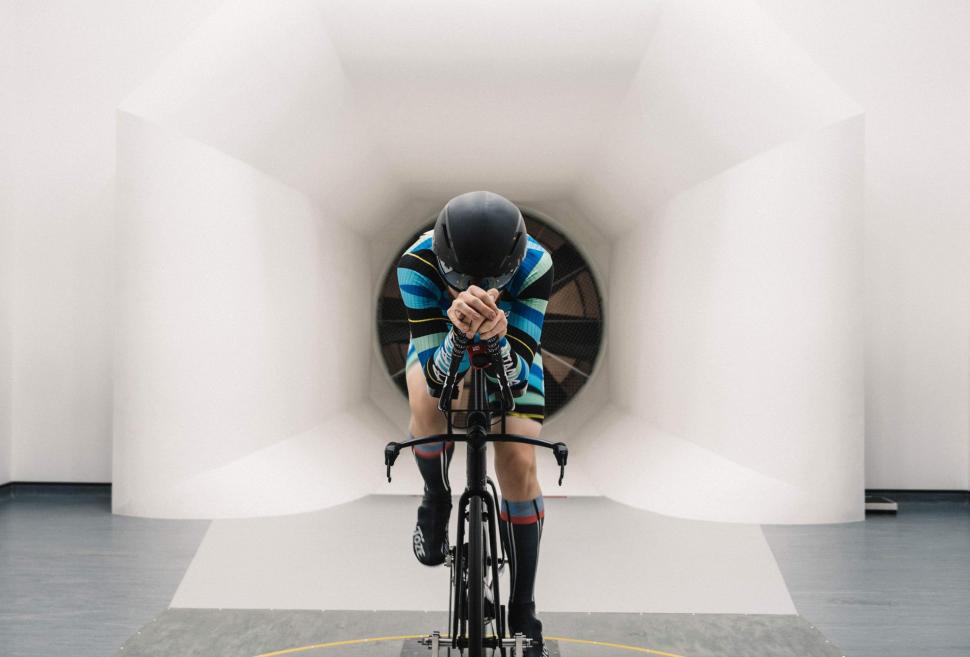





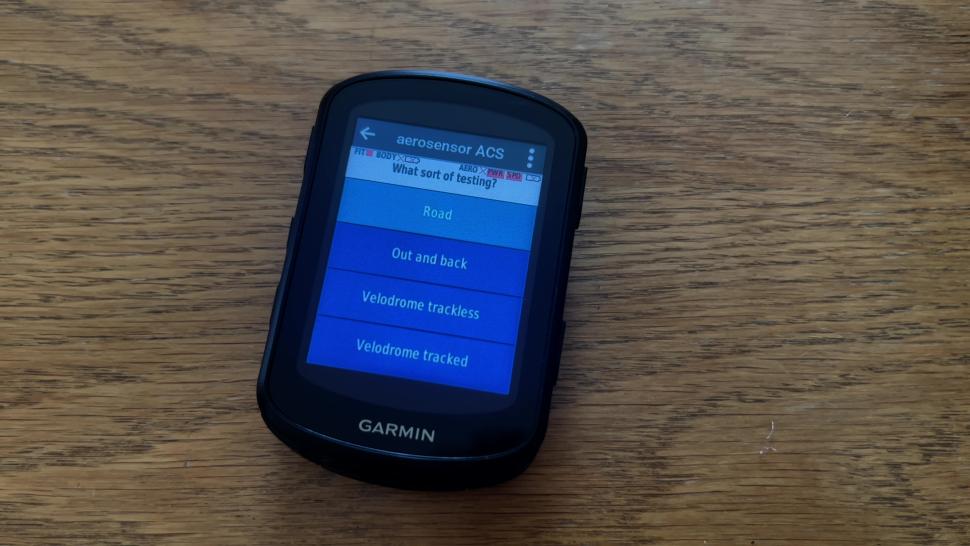


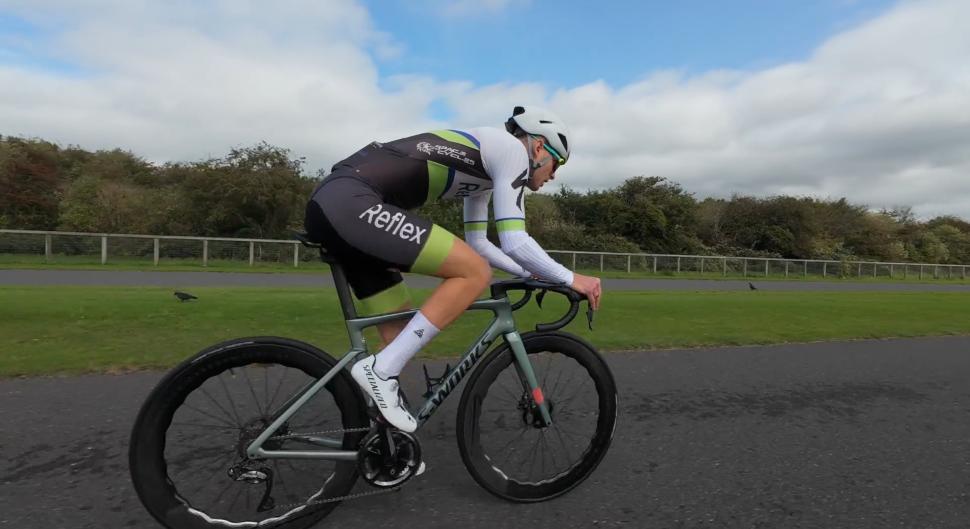
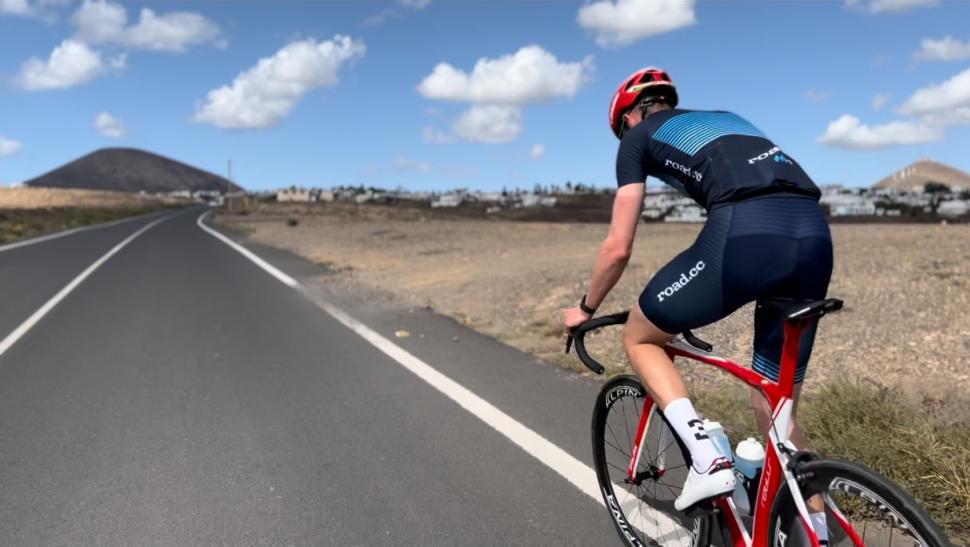

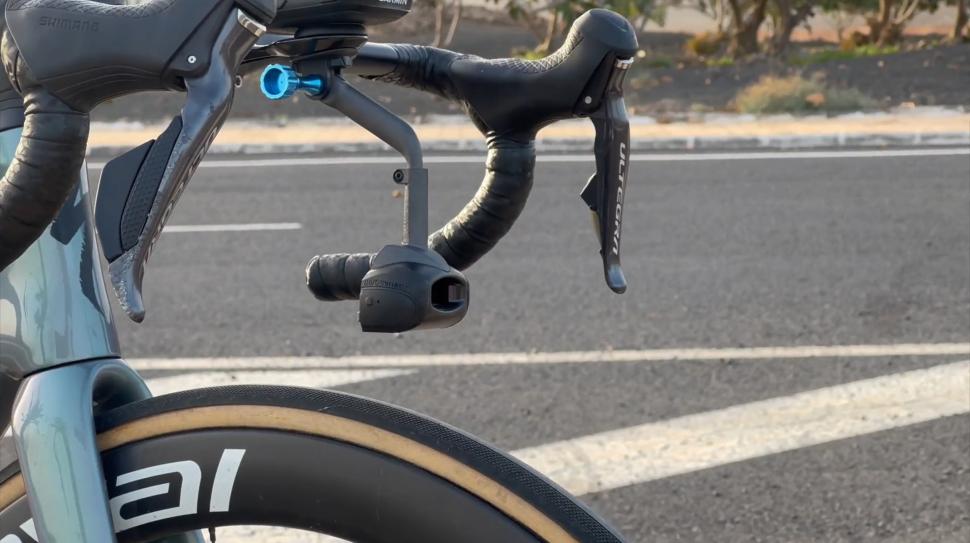
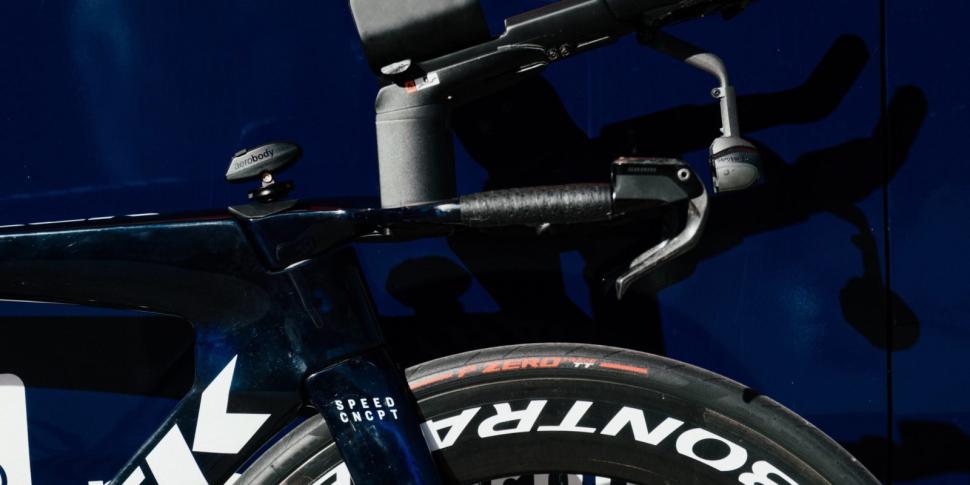
Add new comment
8 comments
All I want to do is ride my bike without all the electronic crap, and relax while doing it.
What's stopping you?
Probably rim brakes
Way too modern...
Great news, 95% of bikes are sold without any "electronic crap" so you have some options. Additionally, relaxing whilst riding is, top lawyers have confirmed, completely legal.
I didn't imagine that ageing would be like that. To increasingly sit there reading stuff about something I adore, i e. cycling, and just think wtaf...
A car going past isn't screwing up the figures, as such. E.g., if you were interested in learning how many watts you can save from cycling on a road with regular passing traffic to help pull you along, versus cycling on a quiet road, those figures would tell you that.
I suspect the turbulent air in the wake of the car is preventing the sensor from getting a true air speed reading so it is unable to accurately calculate the drag. The same thing would probably happen when riding in a bunch.